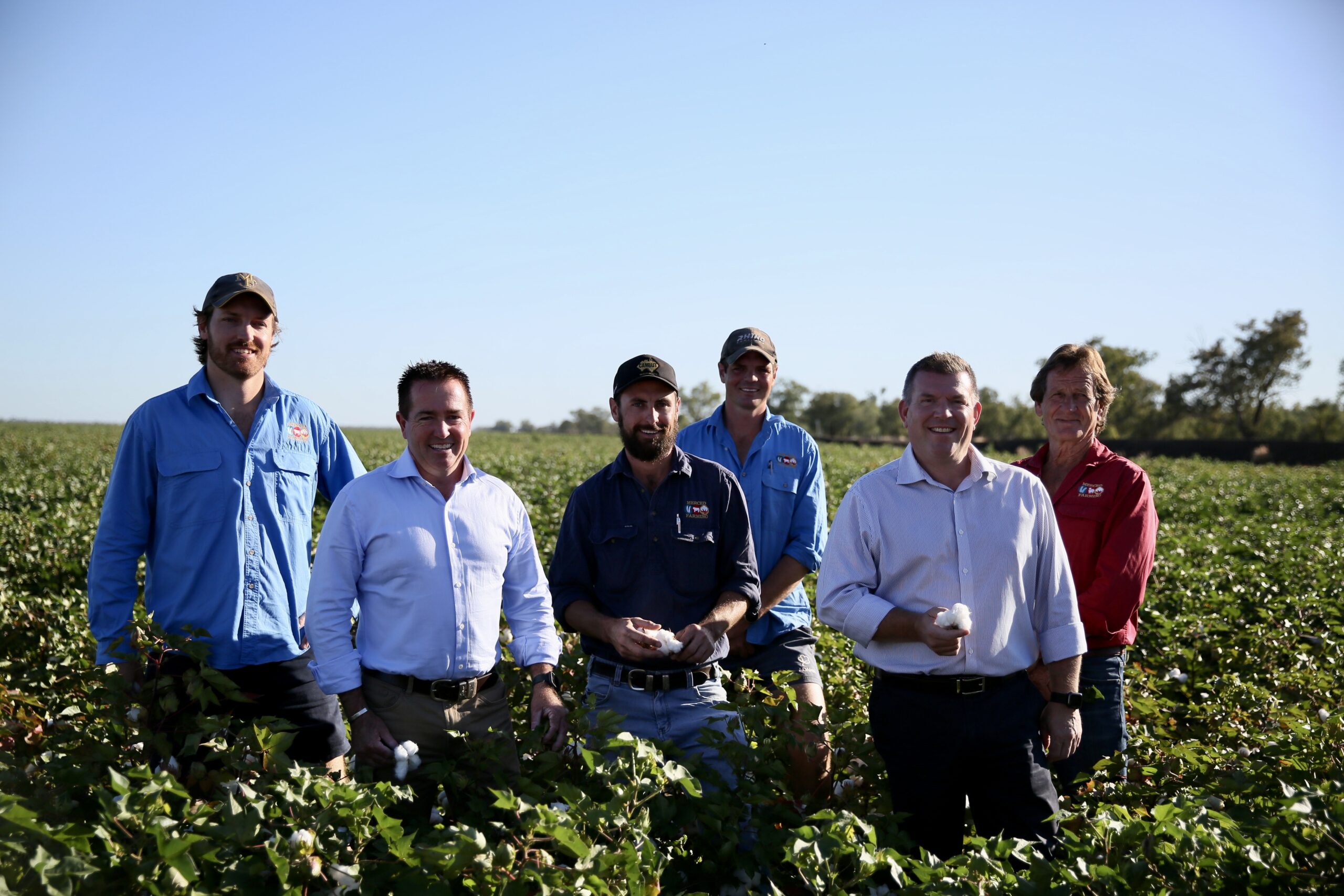NSW Deputy Premier Paul Toole and Agriculture Minister Dugald Saunders travelled to the region last week, including a visit to Wee Waa’s Merced Farming.
Mr Toole and Mr Saunders announced the NSW government’s $125 million investment in the Primary Industries Productivity and Abatement Program to drive sustainable land management, boost productivity and help reduce emissions.
Deputy Premier and Minister for Regional NSW Paul Toole said this latest initiative will create opportunities for food and fibre producers, building on the success story of our farmers and ensuring they are part of the solution to a lower carbon economy.
“Regional NSW is the engine room of the state, with primary producers pumping more than $13 billion into the economy every year,” Mr Toole said.
“The NSW Government is committed to future-proofing our primary industries by helping farmers diversify their businesses, and strengthen economic and climate resilience in our regions.”
Treasurer and Minister for Energy Matt Kean said the primary industries sector is a key driver of economic prosperity in our regions.
“Primary producers and land managers are playing an important role in NSW achieving its goal of reducing emissions by 50 per cent by 2030 and achieving net zero by 2050,” Mr Kean said.
The Primary Industries Productivity and Abatement Program has three focus areas:
• $52 million to develop market and industry foundations, including trusted and transparent data, metrics and frameworks to assess carbon and biodiversity outcomes;
• $72 million to build critical mass and capacity, including incentives for land managers to reduce emissions at scale; and
• $1 million for accelerating finance for natural capital and low carbon farming, by working with the finance sector to increase investments in natural capital and low carbon farming.
Minister for Agriculture and Western NSW Dugald Saunders said the NSW government is continuing to engage with stakeholders on the
implementation of the program, with applications for funding to open in the coming months.
“This is all about building economic resilience and creating jobs in regional communities, by encouraging sustainable farming practices through grants programs and partnerships with financial institutions,” Mr Saunders said.
“Primary producers are set to benefit from a broad range of support from this program, including advice on how to maximise carbon opportunities in their business, direct funding to projects which reduce emissions and increase sequestration of carbon in soils, and the implementation of more efficient modes of measuring and reporting environmental performance.”
Minister for Environment James Griffin said investment in the program will also benefit the environment.
To order photos from this page click here




